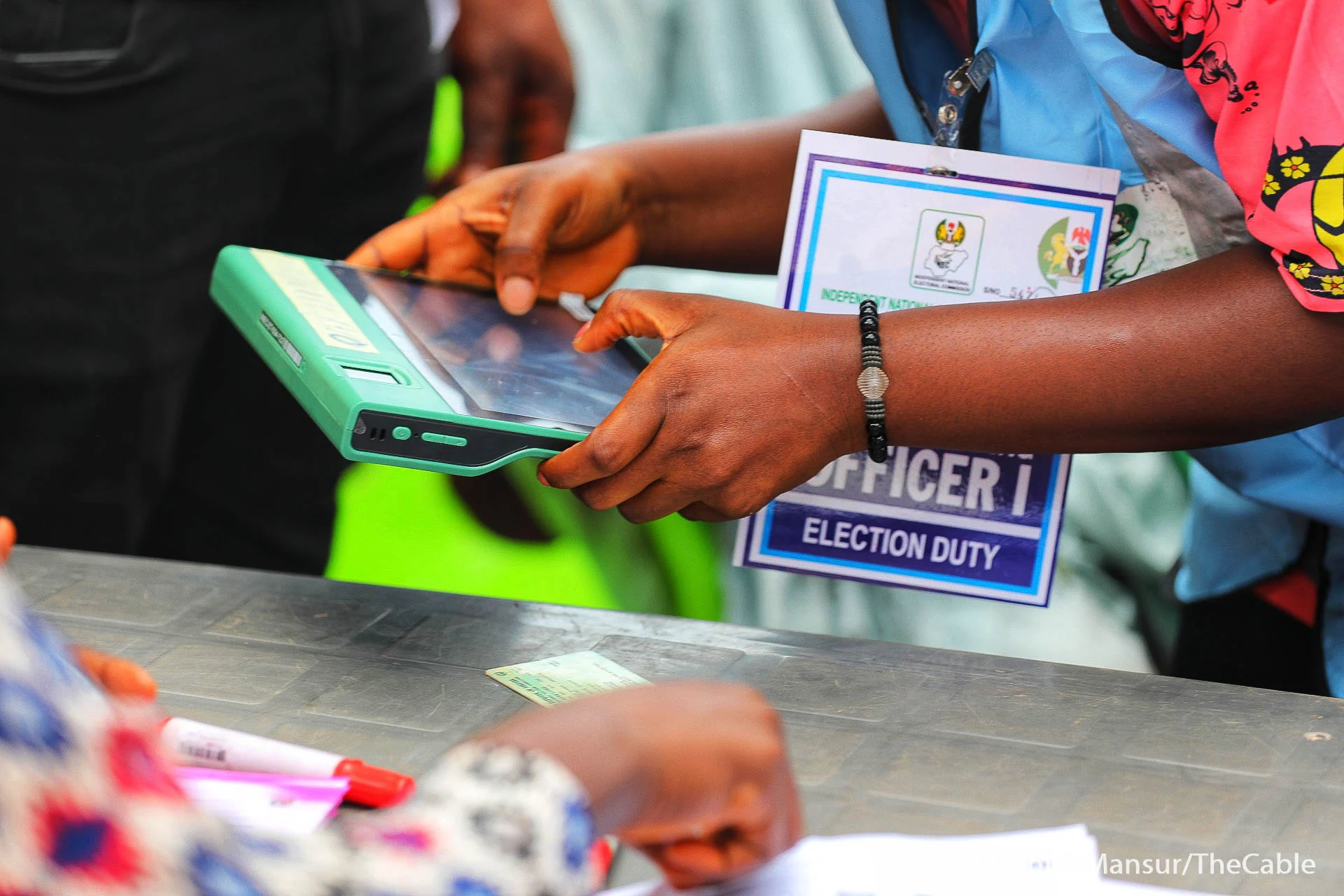The Independent National Electoral Commission has explained how the Bimodal Voter Accreditation System (BVAS) will transmit results in the ongoing governorship election in Ekiti State.
Prof. Sam Egwu, Resident Electoral Commissioner of INEC in Niger State who also doubles as INEC’s Supervisory Officer for the Ekiti gubernatorial election stated this in an interview on Saturday during the exercise.
He said contrary to claims that the commission is conducting electronic voting, it is rather conducting electronic transmission.
EkitiDecides: Naira rain as politicians induce voters, security operatives
EkitiDecides: Ballot box for senatorial election spotted in Guber Poll
He said, “It is important for Nigerians to know that there is a difference between electronic voting and electronic transmission. Although the Electoral Act provides for electronic voting, what INEC is doing today to improve the process is electronic transmission of results through BVAS.
“The process begins from the polling unit after polls are cast, sorted out, collated and tabulated then the results will be entered into form 60E which is meant for all voters to see and afterwards, the result is snapped by the BVAS and uploaded on the server as recommended by INEC.”
Egwu said there would not be conflicting results from the polling unit, adding that results uploaded by BVAS would be accurate.
He also noted that “the document transmitted is the hard copy of the results that has been photographed.”
Mr. Festus Okoye, INEC’s national commissioner on voter education had said BVAS had been deployed to every polling unit.
“In any polling unit where we have more than 750 registered voters, we are going to deploy an additional BVAS to those polling areas,” the INEC national commissioner had said.
“We have a total of 2,445 polling units that will be used for this election, but we have deployed a total of 3,346 BVAS to Ekiti State. So, we are going to have redundancies in every registration area.
“We have also trained enough registration area technical assistants who can intervene at very short notice if there is any challenge with the BVAS. From the test runs we have done, we are confident that the BVAS will perform optimally and that every person who is genuinely and legally registered to vote in this election will have an opportunity of exercising his/her right,” he added.
BVAS is an electronic device designed to read Permanent Voter Cards (PVCs) and authenticate voters using the voters’ fingerprints to confirm that they are eligible to vote at a particular polling unit.
BVAS usage entails either scanning the barcode/QR code on the PVC/Voter’s register or entering the last six digits of the Voter Identity Number or typing in the last name of the voter by the Assistant Presiding Officer (APO 1) to verify and authenticate the voter.
This Explainer is done in collaboration with the Center for Democracy and Development (CDD)

 Join Daily Trust WhatsApp Community For Quick Access To News and Happenings Around You.
Join Daily Trust WhatsApp Community For Quick Access To News and Happenings Around You.


